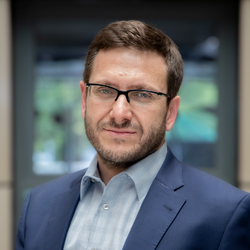MIGRATION AND ASYLUM GOVERNANCE IN SOUTHEASTERN EUROPE

INSTRUCTOR: Dr Markos Karavias is the Director of the Mediterranean Migration and Asylum Policy Hub
Course Description
International migration is a large, growing and particularly challenging phenomenon. Over 200 million people now live outside their country of origin. Limited legal avenues of entry, global crises (environmental, religious, and political) and rising inequality, combined with multiple methods of travel and communication have significantly shaped migratory flows within and across regions. We are seeing new ‘types’ of migration, mixed migratory flows comprised of asylum seekers, refugees and economic migrants following similar routes, methods of entry and facing similar difficulties and challenges en route. From source to destination, journeys are less linear, entailing transitory movement and transit countries. Yet, the response from governments and policy makers is to focus more on short-term measures, attempting to ‘manage’ movement-a fundamentally fluid phenomenon that is currently rapidly unfolding around the globe but especially in the Mediterranean and Southeastern Europe. In 2015, 850,000 migrants entered Greece. Of those the overwhelming majority transited through the Western Balkan route, to their final destination in northern and western Europe. Though Southeast Europe has always had a long tradition of migration, including asylum seeking flow, the events of 2015 had a profound impact first and foremost on Greece, Turkey but also the Balkan countries.
The course seeks to guide students through the debates, policies and theories around the governance of contemporary migratory movement, including asylum seeking populations, drawing examples from different countries and with an added focus on Turkey and Greece
Course Aims
The objective of the course is to provide students with an understanding of the contemporary governance of irregular migration and asylum-seeking flows in the European Union and near neighbourhood, particularly prior, during and after the refugee crisis of 2015.